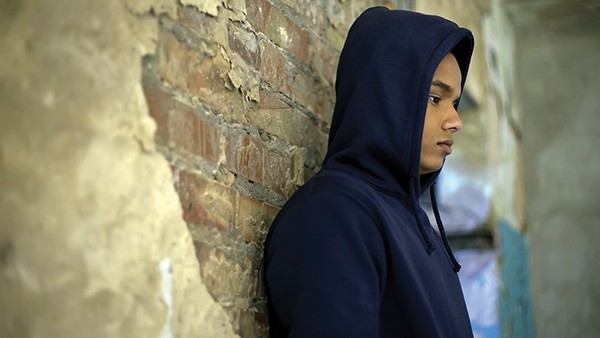It’s been said that Memphis has momentum. And parts of Memphis do have momentum. The city’s Downtown and center core could pose as any hustling and bustling city on the rise. There you’ll find high-end grocery stores, fancy hotels, and brand-new apartment buildings.
But when you drive through the streets of South Memphis — the real South Memphis, not the part of McLemore that boasts Memphis Rox and Stax, I mean down Trigg or Florida — you’ll find a completely different world. It is undisputedly not the same Memphis you see when you drive along Madison or Poplar. Wooden boards cover windows, weeds sprout from sidewalks, and liquor stores abound. There are no grocery stores, no restaurants apart from fast food joints, and no neatly kept parks. This is evidence of years of disinvestment in a forgotten neighborhood.
 Motortion | Dreamstime.com
Motortion | Dreamstime.com
Breaking the trend of generational poverty
This isn’t the only Memphis neighborhood that looks this way. There are plenty of neighborhoods that lack the momentum found in the city’s core. The reality is nearly 30 percent of Memphians live in poverty (according to the updated Memphis Poverty Fact Sheet released in September by the University of Memphis). That’s approximately 181,000 Memphians living without the means to truly provide for themselves and their families.
The national poverty rate continues to drop, but the same isn’t true for Memphis. From 2017 to 2018, it increased here by more than 3 percent. And from 2005 to 2018, the poverty rate here increased by about 4 percent.
The most disheartening fact in the report is that nearly half — 44.9 percent — of all children in Memphis are living in poverty.
This is an unfair reality. These kids who live below the poverty line are the same kids who are meant to be our future leaders — our teachers, doctors, and lawyers. It’s not impossible for them to reach such heights, but the odds are stacked against them.
What is a child to do who is born into a household with four siblings and a single mom making less than $30,000 a year? This isn’t hypothetically speaking. I’ve met kids in this situation. I’ve seen their lack of resources and their needs firsthand. Without someone or something reaching into that child’s life, their future is likely to mirror those who came before them, continuing the trend of generational poverty.
What will it take for all of Memphis’ youth to grow up with opportunities and have the chance to get a job, earn money, and live the so-called American dream? What can be done by the people in charge? Job creation, raising minimum wages, incentivizing development? Sure, but it goes beyond that. The city government can only do so much. It has a role to play, but they aren’t the only ones who can move the needle.
It’s the everyday folks like me and you who can help turn the tide. It’s the people on the ground. It’s the local churches. There are hundreds and hundreds and hundreds of churches here. From state-of-the-art edifices on mega-campuses to tiny chapels on street corners, churches are ubiquitous. Imagine if every church stepped up and lent a hand to the “least of these.” Imagine if people of means invested more into the community programs on the ground working to pull people out of poverty.
It’s the people, the churches, the nonprofits, the entrepreneurs, and the organizers who can make the difference at the end of the day. The world of privilege is hard to step out of. But when you venture through a South Memphis neighborhood or walk into a community center in North Memphis, you realize the Memphis you live in is not the same Memphis everyone knows. But this doesn’t have to be the case.
The willing folks who care about Memphis and love its people have to extend ourselves beyond our comfort zones and offer a hand to those living on the margins. We’re meant to help the ones who think they’ve been forgotten about and lost in all the momentum. We’re doing it already, but we have to do more. It’s a new year, a new decade. Let’s reignite that flame. The narrative has to change sooner than later. And, hopefully, at the end of this decade, we can truly say that all of Memphis has momentum.
Maya Smith is a Flyer staff writer.